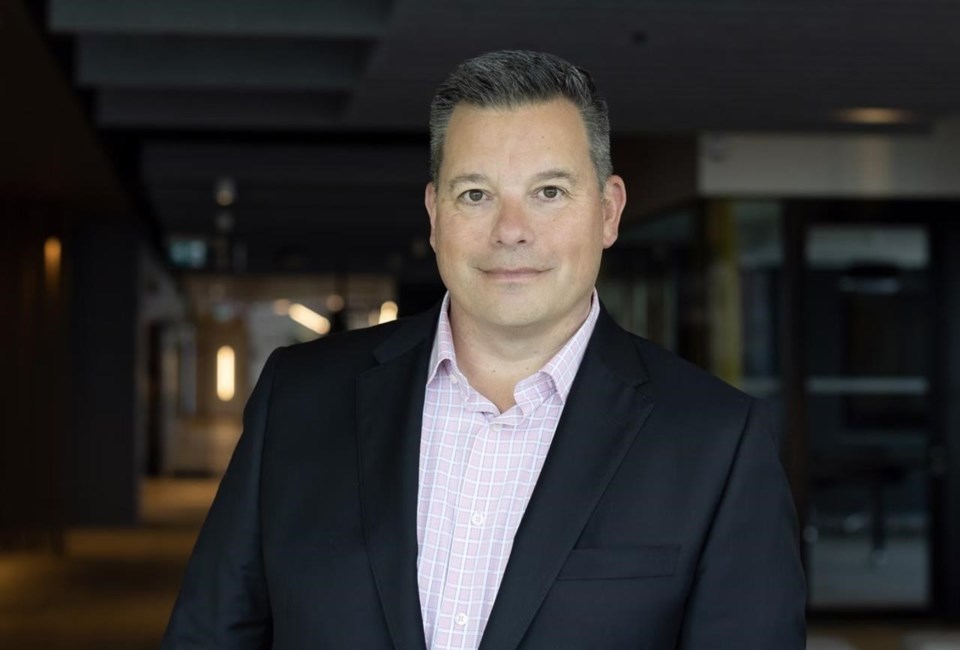TORONTO — When the head of Microsoft Canada needed to write a letter of interest as part of an application to join a not-for-profit board, he decided to put the tech giant's software to the test.
Chris Barry commanded Copilot, the firm's generative artificial intelligence service, to craft a five-paragraph missive based on his LinkedIn profile that was so good he only had to remove one word before sending it.
"I omitted one adjective that was a little over the top, a little too much, not quite my voice," the Microsoft Canada president told a room of chuckling attendees at an executive AI summit the company hosted Wednesday in Toronto.
Later, in an interview, Barry said he didn't think many other executives are using AI to the same degree, despite the hype that has built up around the technology over the last two years. But he urged workers of all ranks to get acquainted with it because the country's productivity is at stake.
"The truth is Canada has unfortunately a long history of not adopting new technologies as fast as others, in particular, the U.S., and some of that does show up in the labour productivity stats," Barry said.
Canada’s labour productivity eked out a small gain to close out2023, but it had previously sustained six straight quarters of decreases, Statistics Canada data shows.
In November, BMO Capital Markets chief economist Douglas Porter declared the country "listless and lagging U.S. trends" because it had fallen behind its neighbour, the Nordic countries, most of Western Europe and Australia in the Organization for Economic Co-operation and Development's productivity rankings.
Such stats "worry" Barry, especially because he considers the country "a stalwart and vanguard" of AI research.
Much of that research began decades ago with two “godfathers” of the technology, Yoshua Bengio and Geoffrey Hinton, who won the prestigious A.M. Turing Award — often called “the Nobel Prize of computing” — with Yann LeCun.
Bengio and Hinton set up AI research hubs, the Vector Institute in Toronto and Mila in Montreal, to build on their findings and advance Canada's AI capabilities.
To avoid squandering the opportunities, Barry encouraged workers to get their hands on AI and build an understanding of how it can be used.
Some companies, for example, allow their workers to use it to draft emails, parse data or write product captions.
Using AI should be on the minds of leaders too, said Barry, because it can boost productivity and even help automate business processes by reducing tasks that can be seen as "drudgery" because they are so monotonous, tedious or menial.
Barry uses AI to collect and synthesize his last few interactions with specific people or on a certain topic. He has also relied on it to summarize what he missed when he arrives to a meeting late, unearths conversations he has missed in the hubbub of his schedule and even identify when he has spent more or less time on particular parts of the business than he intended to.
Others have gone even further.
Speaking with Barry on stage, Roots Corp. chief executive officer Meghan Roach said she is using Copilot in place of an executive assistant.
"It's not working so well, but I'm trying," she conceded.
Roach was inspired to dabble in AI because of a book she read that said people only need a basic understanding of a handful of technologies to become more receptive toward innovations.
Barry said later in the interview that Roach is pushing her use of AI "to the very edge" and it is outside of Copilot's key use cases but he lauded her openness toward the technology.
When companies are considering using AI, he said, "it's not about trying to apply it everywhere, but rather (thinking) where are some places where it's impactful that can be brought to bear soon."
At the summit, speakers rattled off several examples of such cases. Panellists talked about howCanadian Tire Corp. is using AI to run a shopping assistant that helps customers select tires and provide real-time inventory info to stores.
The City of Kelowna in B.C. has a chatbot to do initial screenings of building permits and Ontario Power Generation is applying the technology to help match energy consumption with demand and supply at an hourly level.
While companies can run wild with how they apply AI, Barry said, "it's important that organizations don't get sort of blinded by the technology, but instead stay focused on what are the outcomes that they're trying to drive."
That's especially important because the technology is imperfect and AI is still known to make mistakes. As a result, Microsoft has called for regulators to apply "safety brakes," which would ensure AI systems use human oversight and can be stopped in the event of danger.
"I think keeping humans in the loop at important points is very important," Barry said.
This report by The Canadian Press was first published April 25, 2024.
Companies in this story: (TSX:ROOT, TSX:CTC)
Tara Deschamps, The Canadian Press




